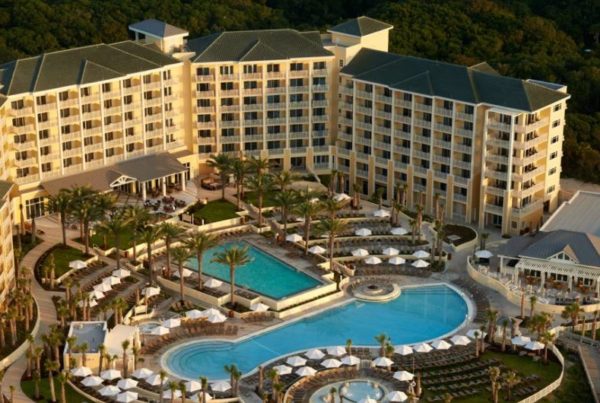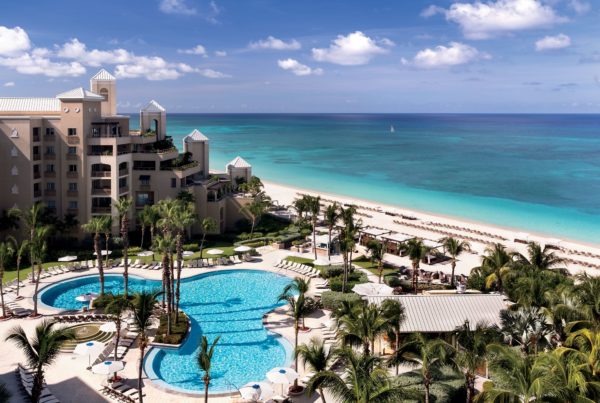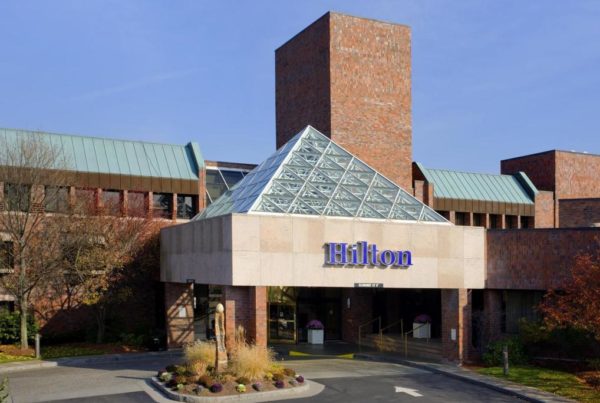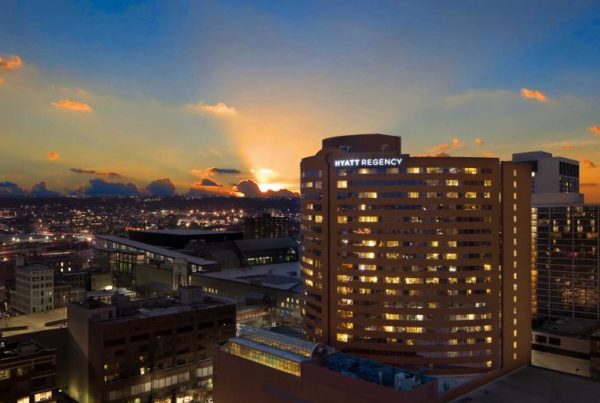HOSPITALITY INVESTMENT AND OPERATIONS EXPERTISE
Lenders and servicers continue to seek our lodging work-out and operations expertise as they proactively address their challenged hotel and resort loans.
The services we provide include:
- Compliance review and monitoring (borrower, manager/operator and brand)
- Valuation analyses (opinions of value)
- Sale of notes and loan instruments
- Strategic critique of hotel portfolio and identification of potential problem assets, borrowers and operators
- Negotiation of brand or operator management agreements
- Asset management pre- and post-takeover
- Identification and implementation oversight of revenue engagement and expense reduction actions
- Review of capital expenditure plans
- REO dispositions, short sales and Section 363 sale processes.
Start the Conversation
Fill out the form below to speak with a member of our team about our advisory services for Lenders.
Decades of Relevant Experience
Many of the lenders and servicers we served during previous downturns are now contacting us again to assist them in navigating current market conditions.
Our principals earned invaluable experience during previous economic down-cycles, including in the early 90s, after the 9/11 terrorist attacks, the Great Recession, and again during the COVID-19 Pandemic.
Using the experience our associates have gained in decades of operating or overseeing hotels on behalf of institutional lenders and investors, we can provide a true and unvarnished picture of what is really taking place at the property level, particularly during challenging periods. Our realistic operating projections will assist in evaluating troubled assets in any lender or servicer portfolio.
HOSPITALITY ADVISORY SERVICES FOR LENDERS AND SERVICERS
Loan Monitoring and Sensitivity Analysis
During a Level One analysis, the advisory team offers an independent set of expert eyes and ears to the lender or servicer. Typically little or no access to information about the hotel or resort will be available beyond what is granted through loan documents.
In the Loan Monitoring and Sensitivity Analysis phase, we will:
- Perform a detailed financial analysis of property operations utilizing readily available property financial information and market intelligence, culminating in a written opinion of current and future value.
- Using the experience our associates have gained in decades of operating or overseeing hotels, provide a true and accurate picture of what is, in reality, taking place at the property level.
- Acquire existing supply and demand lodging data and extrapolate pertinent information as it relates to the subject property.
- Utilize our existing market knowledge and, when possible, use our relationships with experienced local industry contacts, to obtain intelligence on surrounding market and hotel demand issues.
- Provide a written report to the client addressing initial findings regarding the financial viability and operating efficiency of the collateral, compliance with loan covenants, and the property’s ability to service debt.
Asset and Operations Management
In this phase, the advisory team typically has more open access to information and to the property resulting from borrower cooperation governed by a Pre-Negotiation Agreement.
In the Asset and Operations Management phase, we will:
- If deemed appropriate, serve as the go-between with your borrowers, ensuring that they are providing you with the complete and accurate information you need, in a succinct and legible manner, and in a format that you prescribe. Areas of attention include:
- Pre-negotiation agreements
- P&L deferrals
- Default deferrals
- Operating covenants
- Suspension of operations
- Use of reserves
- SNDA issues
- Lender consents
- Loan modification fees
- Myriad other loan-related challenges
- Develop a detailed report of findings and recommendations based on a review of historical financial data, operational, and performance reports.
- If deemed worthwhile and feasible, complete a visit to the asset to discretely gain insight on the property’s operations and physical plant.
- If appropriate, work with the property operator to develop a realistic twelve-month statement of operating projections as well as a break-even analysis.
- Prepare recommendations for revenue generation and cost containment practices after performing a detailed analysis of revenue sources, expenses and controls, departmental operations and staffing.
- Conduct a review of property operations, physical plant condition, and management company contract compliance.
- Review secondary market research and conduct relevant interviews with local professionals to further understand market dynamics and possible impacts on hotel operations.
- Review the owner and/or operator plans to ramp up operations to ensure they are designed in an effective and
efficient manner. - Monitor borrower loan compliance.
Asset Management
As Asset Managers, our team will take a much more active role in overseeing the property, with unrestricted access, providing longer-term asset and operational oversight, usually as a result of the asset having been taken over by the lender or servicer or as governed by a forbearance agreement.
In the Asset Management phase, we will:
- Step into an ongoing oversight role at the property level. We can provide you and the hotel operator with tried and tested strategies to stem the bleeding while still providing guests with a positive experience during their stay.
- Evaluate, recommend, and monitor specific actions relative to all aspects of hotel performance, including revenue
generation, expense management, management proficiency, brand affiliation, capital budgeting, and planning. - Interview and engage a property management firm or general manager on behalf of the client, as needed, and provide oversight of the transition process, as applicable.
- Develop performance benchmarks and financial reporting methodology.
- Develop and implement financial control point responsibilities.
- Source and engage third-party accounting services provider, as needed.
- Monitor management’s existing financial controls, policies, and procedures.
- Provide operational oversight, including regular property visits.
- Review physical plant preventive maintenance procedures.
- Participate in ownership meetings, especially as formal updates of financial and operational performance are presented.
- Facilitate meetings with the franchisor and other constituents as needed.
- Provide a realistic and current hotel valuation analysis, including an estimate as to when the property is expected to return to a valuation on which the loan was originally based.
- Assist in determining the possible disposition of the loan or the asset itself.
Investment Advisory Services
Should a note sale or a disposition of the property, short sale or Section 363 sale become necessary, our Investment Advisory group will execute a well-orchestrated sale process aimed at generating the highest possible proceeds from the most qualified buyers in the shortest possible time. Since 1993, The Plasencia Group has been a national leader in hospitality investment transactions throughout North America and the Caribbean, working alongside dozens of lenders and institutional owners.
Investment Advisory Services overview:
- We provide personalized investment services to banks and pension funds, life insurance companies, real
estate investment trusts, and other owners of hotels, resorts, and golf courses throughout North America. - Our principals have completed billions of dollars in hotel transactions in their combined careers and have
executed some of the most challenging and complicated trades in the marketplace. - We have worked with nearly every major brand, property type, operator, and ownership group in the lodging investment arena.
Examples of history of success with dispositions is available on the Representative Engagements page.
REPRESENTATIVE ENGAGEMENTS
GET IN TOUCH
We would consider it a pleasure to address any questions you may have about our capabilities or services. To discuss opportunities to collaborate with The Plasencia Group, please call us, email us, or fill out the form here and a member of The Plasencia Group’s team will be in touch in the next 24-48 business hours.
PHONE | 813.932.1234
EMAIL | info@tpghotels.com






